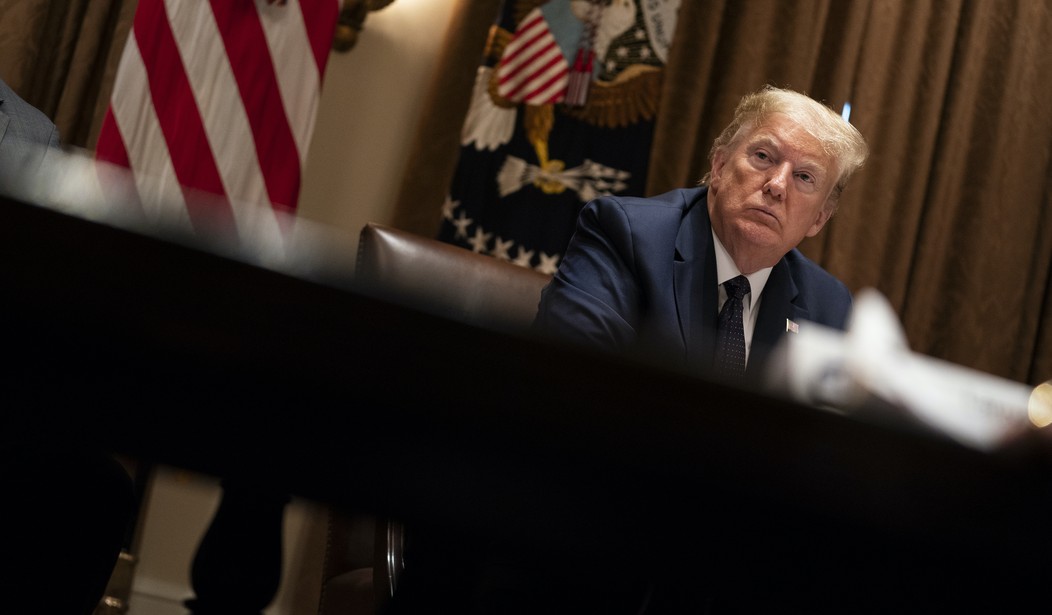The White House may soon issue an executive order that would require drug companies to manufacture certain essential medicines here in the United States. And lawmakers in both parties are pushing for more domestic manufacturing of drugs and other medical products.
Proponents of these "Buy American" proposals want to reduce our reliance on other countries, especially China. These policymakers have the right idea, as making more masks, medicines and medical gear in the United States could help ensure we're equipped to handle the next pandemic without relying on trading partners. But bolstering the domestic supply chain will take time -- and rushing the process could cause the very shortages that policymakers hope to avoid.
America is less dependent on China for essential products than many Buy American advocates believe. We already manufacture 70 percent of essential medical equipment domestically. Of the remaining 30 percent, most comes from Ireland, Germany, and Switzerland. China trails as the fourth-largest supplier.
The United States may also be less reliant on China for medicines than many believe. Twenty-eight percent of facilities capable of manufacturing "active pharmaceutical ingredients” (API) -- the chemicals used to make drugs -- are based in the United States, 26 percent are based in the European Union and 18 percent are based in India. China lags behind at just 13 percent. Only three of the 370 drugs deemed "essential" by the World Health Organization contain active pharmaceutical ingredients sourced solely from China.
This data might not provide a complete picture of the essential drug supply chain, but it does tell us that reports suggesting 80% of our drugs come from China are wild exaggerations.
This doesn’t provide much comfort for those of us who want to reduce even limited reliance on China. After all, the communist nation has shown little respect for U.S. intellectual property, repeatedly violated its trade promises and turned a blind eye to the fentanyl smuggling that has led to so many tragic overdose deaths here in the United States.
But policymakers can't just snap their fingers and repatriate the supply chain. It can cost $2 billion and take up to 10 years to construct a single pharmaceutical manufacturing facility. Rejuvenating our manufacturing industries will take years, even in the best-case scenarios.
Policymakers could help accelerate that timetable by offering more incentives to domestic manufacturers. Currently, other countries offer far more carrots to high-tech manufacturers. For instance, China lets businesses deduct 150 percent of their qualified R&D spending from their taxable income. Ireland boasts one of the world's lowest corporate tax rates. The United States ranks 26th among OECD countries for R&D tax credits.
If policymakers truly want to scale up domestic manufacturing, they'd be wise to mimic these successful policies.
A targeted repatriation plan would also prove helpful. The recently-passed CARES Act tasked the National Academies of Sciences, Engineering, and Medicine with studying the security of the U.S. medical product supply chain. This information will help lawmakers direct their Buy American efforts to the areas we need them most, without unnecessarily disrupting safe, useful trade relationships. There is value in diverse supply chains.
The COVID-19 outbreak highlights the potential dangers of our globalized world. Faced with such an unprecedented health crisis, it makes sense that policymakers don't want to rely on countries like China for crucial medical products. But like anything worth doing, Buy American
David A. Ridenour is president of The National Center for Public Policy Research.
The Right Way to Buy American? Slow and Steady
The opinions expressed by columnists are their own and do not necessarily represent the views of Townhall.com.

Advertisement
Recommended
Trending on Townhall Videos
Advertisement
Advertisement
Advertisement























Join the conversation as a VIP Member